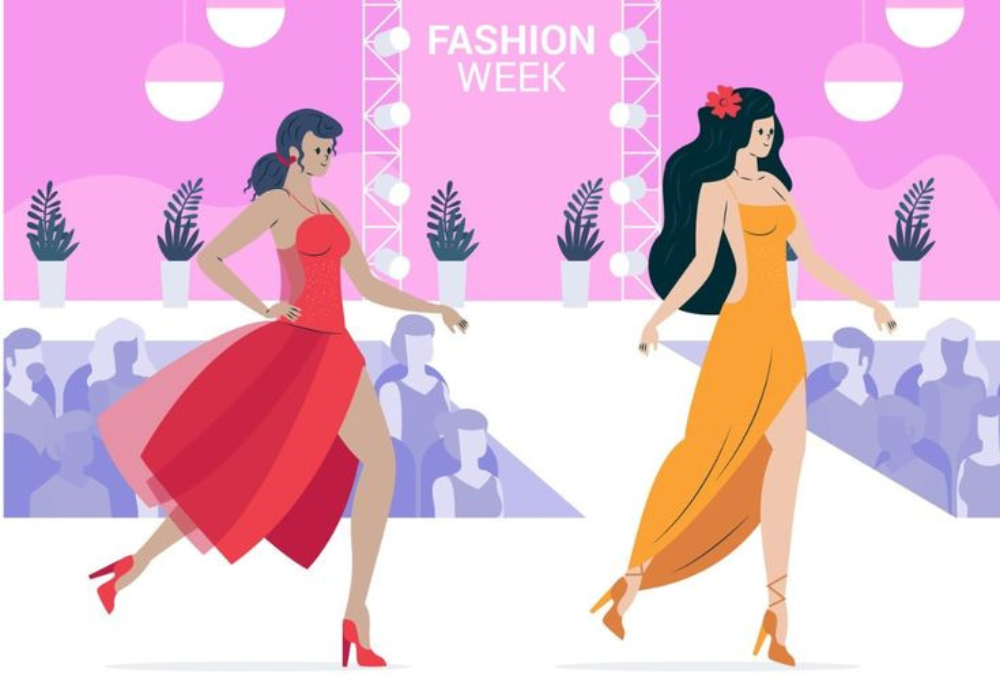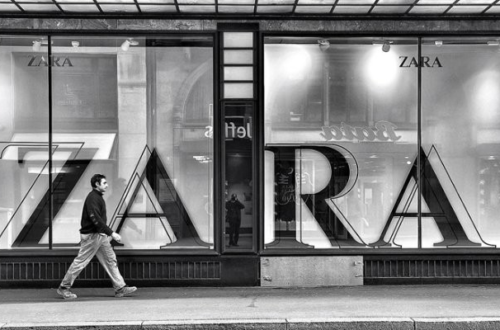Paris Fashion Week, one of the most prominent events in the global fashion calendar, has been dramatically reshaped by the digital age and the far-reaching influence of social media. What was once a relatively exclusive and invite-only affair is now a highly accessible and widely celebrated spectacle. The advent of platforms like Instagram, Twitter, and TikTok has not only revolutionized the way fashion enthusiasts experience the event but has also altered the dynamics between designers, brands, influencers, and the general public.
How Instagram and Twitter Changed Paris Fashion Week Forever
Paris Fashion Week, the ultimate runway extravaganza, ain’t what it used to be. It’s like Cinderella, but instead of losing her glass slipper, she gained a pair of sneakers with the help of social media. We’re talking Instagram, Twitter, and even TikTok! These game-changers have made this exclusive event into a global style fiesta.
From VIP to DIY
Once upon a time, Paris Fashion Week was like a secret club, open only to the elite: celebs, industry big shots, and fancy editors. But then, the digital age happened. Suddenly, you and I could snag a front-row seat. You don’t need a golden ticket; all you need is Wi-Fi!
Gimme Fashion, and Gimme It Now
Remember the days when you had to wait for fashion magazines to spill the tea on the latest collections? Well, kiss those days goodbye. Now, we’re in the era of “I want it now.” Thanks to Instagram, you can virtually sit in the front row. Live stories, behind-the-scenes sneak peeks, and extreme close-ups of fabrics – it’s all there for the scrolling.
Influencers Are the New Royalty
In the kingdom of social media, influencers rule. Fashion brands are sliding into their DMs, asking for collaborations, and influencers are only too happy to oblige. Meanwhile, celebrities use their immense followings to influence trends and make us want that new jacket or those fabulous boots.
#PFW: The Ultimate Fashion Password
Hashtags are the magic spells of social media. #PFW, #ParisFashionWeek, and #StreetStyle are just a few hashtags that transform our feeds into a virtual runway. Fashion enthusiasts from around the world gather online under these hashtags, creating a fashion commune of sorts.
Designing for the ‘Gram
It’s not just about the runway; it’s about the ‘gram. Designers now create collections with social media in mind. Colors pop, details shine, and pieces are made to look fab in photos. Every piece is runway-ready and camera-friendly.
The Fashion Revolution
Social media has democratized fashion. Small, independent brands have as much of a chance as the bigwigs. A diverse and inclusive industry is born, where different styles and voices have a say.
Let’s Keep Scrolling
Paris Fashion Week was once an exclusive club, but now it’s an open party where everyone’s invited. With Instagram, Twitter, and TikTok in our hands, the future of fashion is just a scroll away.
The Social Media Fashion Revolution: How and When It Happened
The transformation of Paris Fashion Week from an exclusive in-person event to a digital extravaganza didn’t happen overnight. Let’s dive into the how and when of this remarkable fashion revolution.
The Birth of Social Media Fashion
The fashion world met social media in the early 2010s, and sparks flew. Suddenly, fashion aficionados could follow their favorite designers and fashion houses on Instagram and Twitter. Designers started using these platforms to share their behind-the-scenes moments, offering a glimpse into their creative process. The hashtag game began, and people around the world joined the #PFW party. With just a click, the world could now tune in to what was happening on the Paris runways.
From VIP Seats to DIY Couture
Before social media took over, getting a front-row seat at Paris Fashion Week was akin to finding a unicorn. VIPs, fashion insiders, and celebs had exclusive access, and the rest of us could only dream. But as social media platforms became fashion hubs, the exclusivity curtain lifted. Suddenly, anyone with a smartphone and an Instagram account had a VIP pass. We went from VIP seats to DIY couture. Paris Fashion Week became a global event, and we were all invited.
The Instagram Revolution
Instagram, with its focus on visuals, was the real game-changer. It made fashion more immediate and accessible. No more waiting for fashion magazines to hit the stands. Fashion enthusiasts could now follow their favorite designers in real time. Collections were unveiled, details magnified, and street style celebrated. Runway shows were no longer a once-a-year spectacle; they happened every day in our feeds. Instagram became the ultimate runway.
Influencers and Celebrities: The New Style Icons
Social media turned influencers into fashion royalty. Suddenly, regular folks with a knack for style became the trendsetters. Brands started reaching out for collaborations, and influencers set trends. The same happened with celebrities; their massive followings influenced fashion choices. When a celeb posts a pic in a new outfit, it’s like a fashion gospel spreading.
The Era of Designing for Social Media
Designers realized the power of social media. Collections were no longer just about what looked good on the runway; they were designed for Instagram. Colors became more vibrant, details more intricate, and everything had to pop in photos. Designers took inspiration from the digital age, making every piece runway-ready and camera-friendly. It wasn’t just about how it looked in person; it was about how it looked on the ‘gram.
Democratizing Fashion
The social media fashion revolution also democratized the industry. Independent brands and small designers could now get their work seen alongside the big fashion houses. The fashion world became more inclusive, diverse, and open to new voices and styles. It was no longer just about the elite; it was about the people.
When Did It All Change?
The fashion industry began its love affair with social media in the early 2010s, but it was around 2016 that things really started to shift. By then, Instagram and Twitter had firmly established themselves as fashion platforms. Fashion influencers emerged, and they held sway over the trends. Paris Fashion Week officially became a digital sensation.






